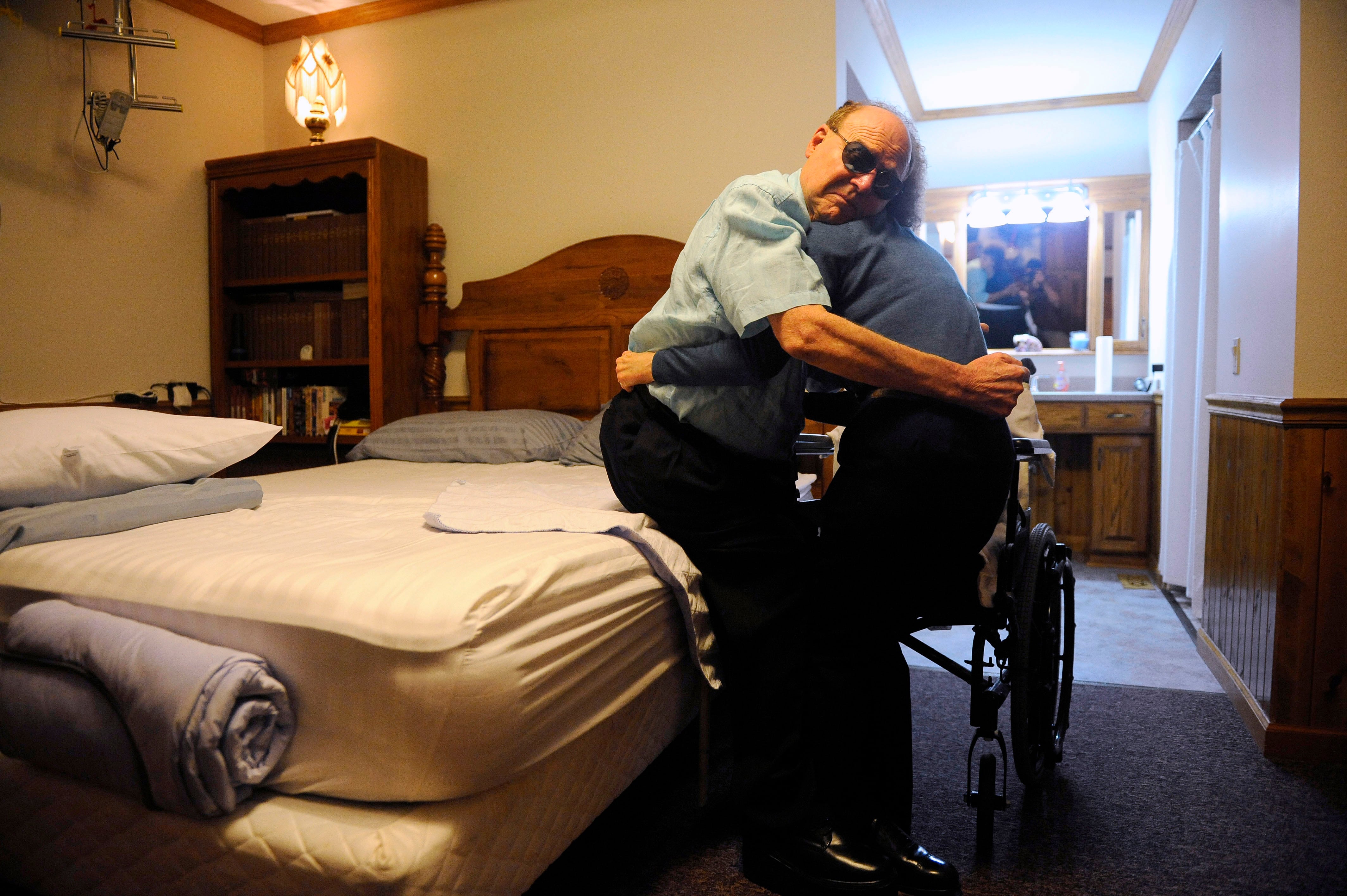Veterans Affairs Secretary Denis McDonough said top officials will re-evaluate ongoing changes to the department’s caregiver support program which could take away stipends from thousands of families over the next year.
“I am worried about the feedback we’re getting,” McDonough told reporters at his monthly press conference on VA issues. “We work for caregivers, we work for the veterans. We want to make sure that they’re getting the information they need and clarity about why we’re making the decisions we’re making.”
Earlier this month, a coalition of 15 veterans service organizations presented formal objections to planned department changes in the Program of Comprehensive Assistance for Family Caregivers, which provides stipends to family members who provide home care to elderly or infirm veterans.
RELATED

Among the complaints were that the new rules “drastically changed the program’s eligibility criteria” resulting in “harsh impacts” for families.
About 33,000 individuals are currently enrolled in the program, which provides support services and monthly stipends to caregivers of veterans unable to perform basic self-care activities.
The stipend is set to expand in October to include families of veterans who served between the Vietnam War and the Afghanistan War, prompting the department work to ensure that existing program participants are being treated equitably.
VA officials announced last fall that they expected around 6,700 families would be dropped from the program under the changes, but that no families would see any financial payouts decreased or ended before October.
The idea was to ensure that individuals would have time to prepare for the financial impact of losing the stipends, which can total more than $3,000 a month. But advocates objecting to the changes have nonetheless called them too restrictive and unforgiving, aimed more at culling families from the program than balancing veterans’ medical and emotional needs.
McDonough said that in coming weeks, Deputy Secretary Donald Remy will head up a review on the work so far “to make sure that we’re learning everything we can from and that we’re making best use of investments Congress has made in this program.”
RELATED

On the criticism the department has received, McDonough said he is unsure if it represents widespread communication problems with staff and participants, or simply a small minority unhappy with the personal impact on their families.
The secretary said officials do not have authority under the law to include veterans with non-service injuries (individuals must have a VA disability rating of 70 percent or more to qualify) but do have more flexibility in how they evaluate whether full-time caregiver services are needed to improve a veteran’s quality of life.
He expects Remy’s review to take several weeks, and look both at changes to the program and how they are being communicated to the families involved.
“[Caregivers] will be a bigger part of the backbone as our aging veterans demonstrate that they, like the rest of the country, want to age in place,” he said. “And so we want to get this right.”
Leo covers Congress, Veterans Affairs and the White House for Military Times. He has covered Washington, D.C. since 2004, focusing on military personnel and veterans policies. His work has earned numerous honors, including a 2009 Polk award, a 2010 National Headliner Award, the IAVA Leadership in Journalism award and the VFW News Media award.




